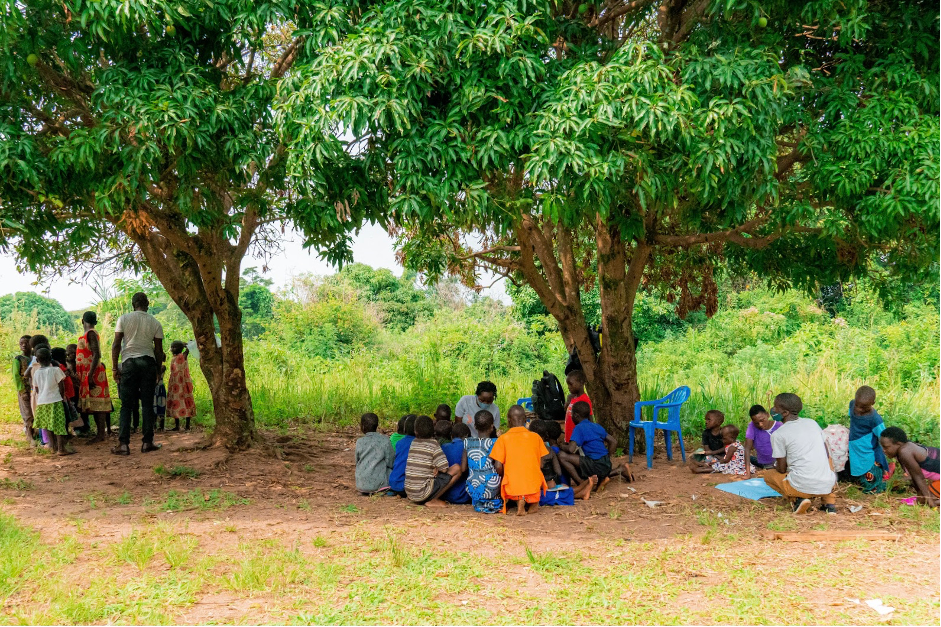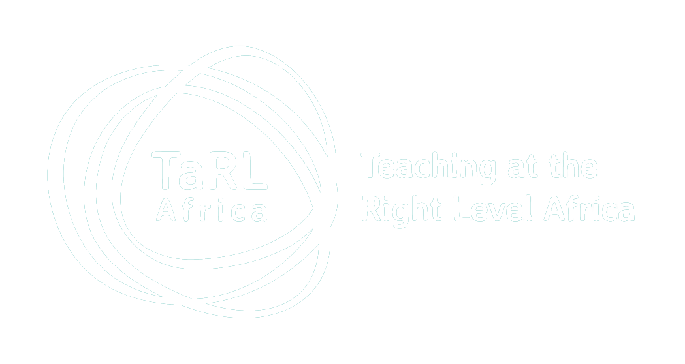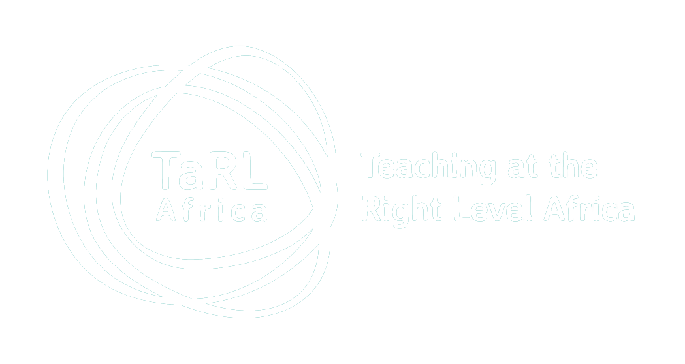Uganda
TaRL Africa is partnering with local organisations to support the foundational skills of children across Uganda.

Background
Even before the COVID-19 pandemic, Uganda was already experiencing a learning crisis. The majority of children in school are not learning, with only 6% of children in Primary 4 able to read and understand a simple story and only 2% able to solve an age-appropriate math problem (World Bank, 2019).
TaRL Africa is partnering with multiple local organisations to address the crisis of learning in Uganda.
Background
Bridging the Gap program” is an innovative and first of its kind project implemented in Kyaka II refugee settlement. The aim of this project is to address the issue of language, which has prevented many refugee children from enrolling in school or caused them to drop out of school. This is due to the fact that refugees from DRC are transitioning from a French to an English curriculum when they cross the border into Uganda.
Young African Refugees for Integral Development YARID in partnership with Street Child have therefore utilized the TaRL methodology in order to help these children develop the foundational literacy and numeracy skills so that they can integrate into formal education. The project also works closely with the community and other stakeholders like the government of Uganda through the office of the Prime Minister and local government, UNHCR and other education partners in the refugee settlement.
Implementation Model
The refugee children go through a learning cycle for 6 months (1.5 months mother tongue, 1.5 months mother tongue and English and 3 months of English only) and then integrate into the formal school which the bridging centers are attached to. The children are required to attend daily literacy and numeracy TaRL sessions. The sessions are delivered by one Ugandan national teacher and one refugee teacher, who work together and use a combination of mother tongue and English to teach the children, with lessons being delivered solely in English at the later stage. The teachers focus on supporting the children to develop foundational literacy and numeracy skills using interactive and play based teaching methods so that they can integrate into formal education. They do this through grouping the children based on learning levels, rather than age or grade. This allows them to appropriately pitch the learning activities according to the children’s learning needs. Regular assessments allow teachers to regroup the children throughout the programme thus ensuring that activities continue to be targeted at their present learning levels.
Reach and Results
Yarid has reached a total of 1,380 children between Jan to June 2022 from our current 8 bridging centers in Kyaka II refugee settlement.
Through the intervention, Yarid has learned that community engagement with the parents and other stakeholders is key for the success of the project and it has greatly improved the attendance levels of the children. Additionally, the introduction of the initial mother tongue component has quickened the learning of the children because they feel comfortable to develop these literacy skills in the language that they are most familiar with. This has also been enhanced by the combination of the national teachers and refugee assistant teachers who work together to translate the sessions and ensure all children understand better. The peer to peer learning approach has helped so many children to progress, particularly during the lockdown period when the children were unable to attend sessions daily.
Key observation is there is such a high demand and there are many more children that are unable to reach but who would benefit greatly from the support!
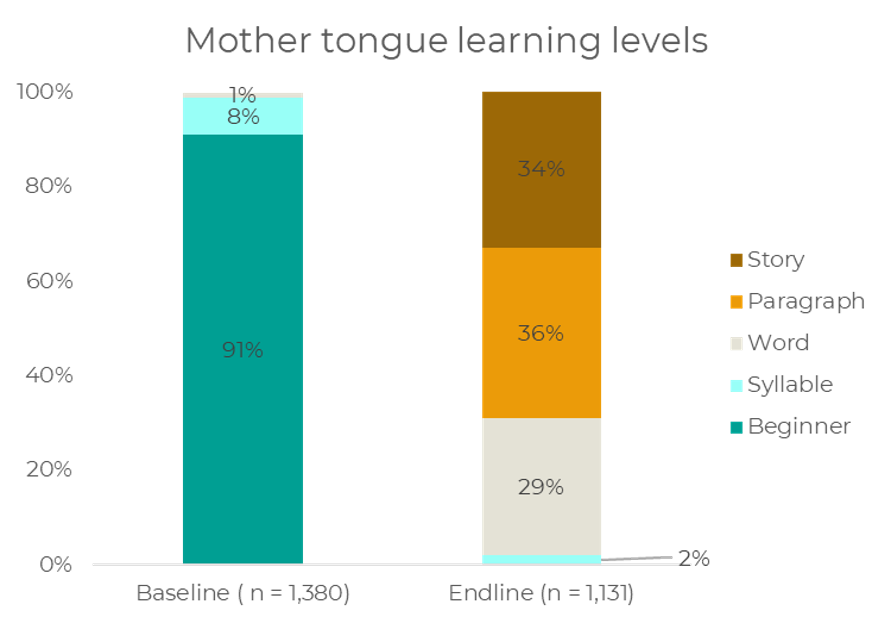
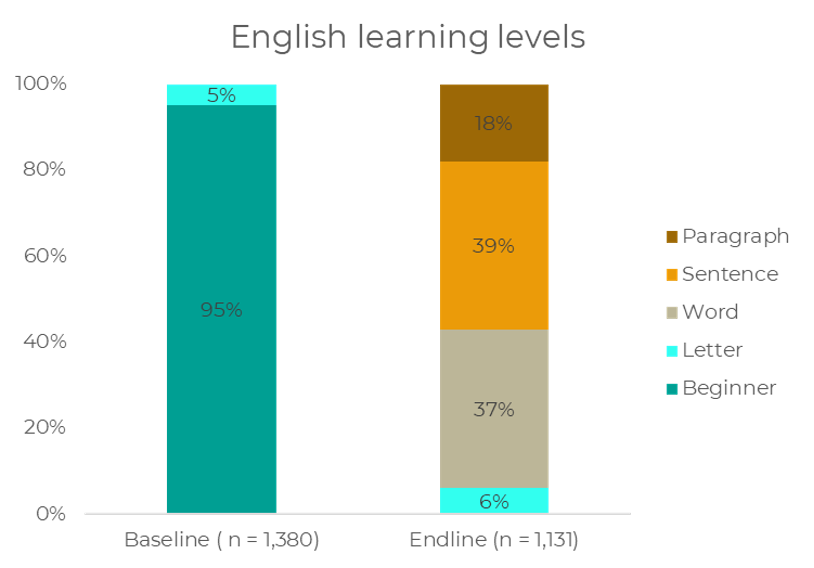
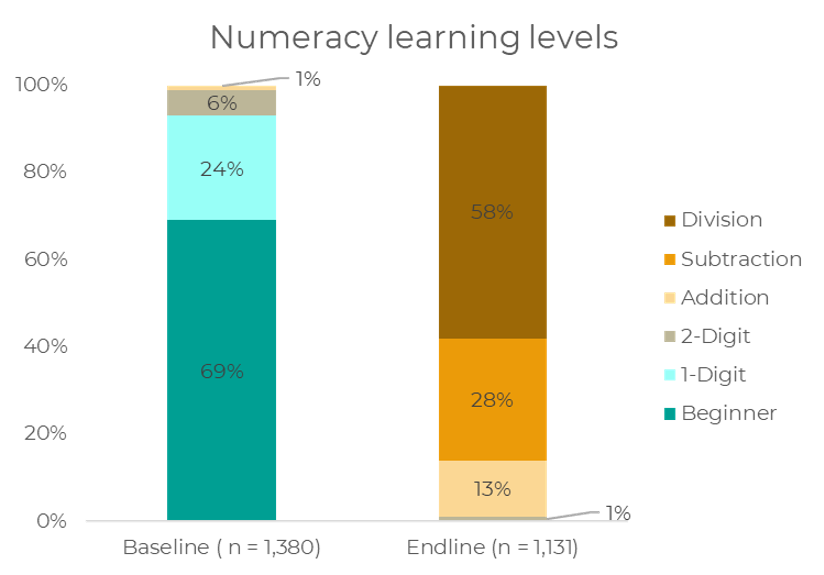
Background
Like in many other countries, majority of Ugandan primary school learners, are struggling with foundational literacy and numeracy skills. This has been exacerbated by the COVID-19 pandemic and as such, remediation programmes that can be integrated within public education systems are needed.
Through VVOB in Uganda, primary school teachers are equipped to deliver remedial literacy and numeracy lessons to P3, P4 and P5 learners using the TaRL methodology in a classroom setting. Currently VVOB is implementing TaRL in five districts targeting government aided primary schools and contextualizing for specific needs such as refugee and host community learners and socio-emotional learning skills. VVOB Uganda is currently implementing TaRL in 232 schools and by January 2023, 288 primary schools will have been reached.
To deliver the programme, VVOB’s main partner is with the Ministry of Education and Sports (MoES) at the national and district level, supported by TaRL Africa, Harvard EASEL Lab, and IPA as technical/knowledge partners. The individual projects are currently funded by Unicef, LEGO Foundation and the Hempel Foundation.
Implementation Model
VVOB, through a team of master trainers, equips school teachers to deliver TaRL lessons following a school-based modality, with a target of running 120 hours for literacy sessions and 120 hours numeracy sessions within two school terms. These TaRL lessons are provided before and after ordinary school hours. The teachers received mentoring support from school-based mentors (Deputy headteachers) as well as from external mentors (associate assessors and coordination center tutors). Significantly, the support to the teacher remains aligned to existing teacher inspection and professionalization framework of the Ugandan education system.
Reach and Results
Periodic assessment results indicate promising improvement in learners’ foundational skills after only a short period of TaRL lessons. Data from 12,885 over age for grade learners from a total of 172 schools in the districts of Isingiro, Terego and Madi-Okollo where the intervention has been implemented for more than a term shows significant improvements in both literacy and numeracy rates. For example, 31.6 percent of learners can read a local language story fluently after one school term of attending TaRL lessons up from 12.9 percent before the start of the intervention.
Change in local language reading levels between midline and baseline

Change in local language reading levels between midline and baseline
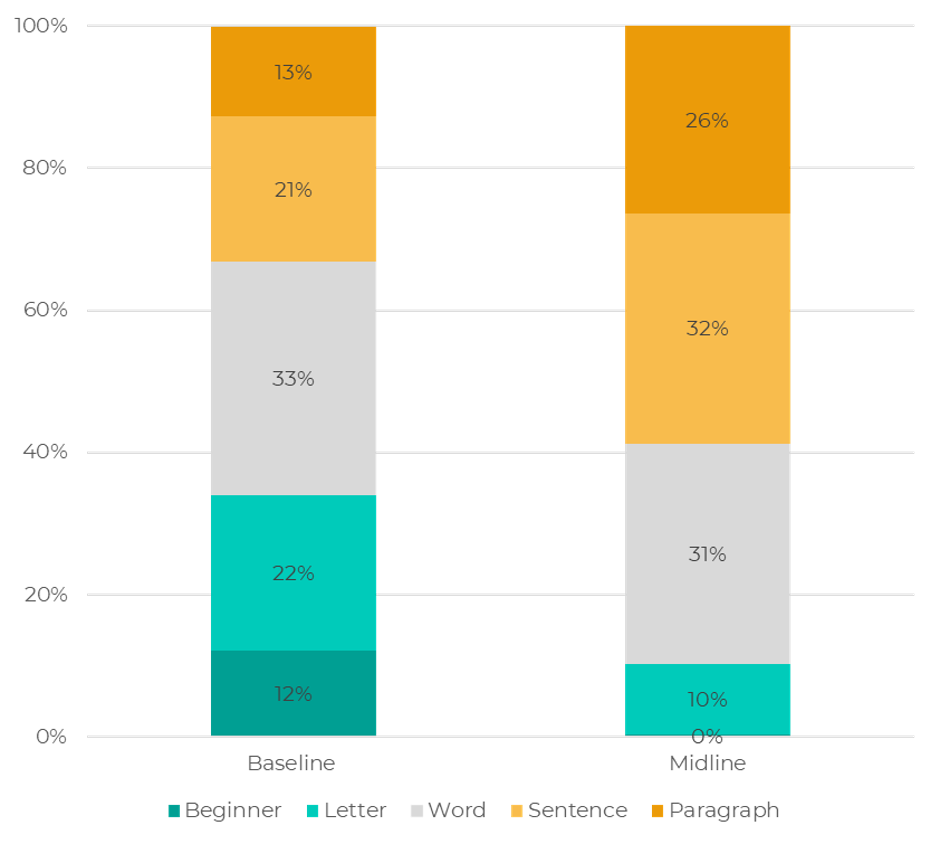
Change in local language reading levels between midline and baseline

Background
To combat the learning crisis in Uganda, Building Tomorrow launched in 2018 a signature foundational literacy and numeracy program called Roots to Rise (R2R). R2R adapts the proven Teaching at the Right Level (TaRL) pedagogy to the Ugandan context, leveraging community and school support to deliver learning-level-specific lessons to children in transitional classes.
Building Tomorrow works with 20 district governments and 5 primary teacher training colleges to support the implementation and scaling of Roots to Rise (R2R).
Implementation Model
R2R is delivered by Building Tomorrow Fellows and Community Education Volunteers (CEVs). The fellows are recent Ugandan university graduates employed to support education in underserved communities and the CEV’s these are community members passionate about education. R2R is designed to test for literacy and numeracy skills using standard assessments, group students by ability rather than age or grade, and provide 40 contact hours of interactive learning activities targeted to children’s learning needs, in contrast to the “chalk and talk” style common in Ugandan classrooms.
Within schools, R2R is a remedial program led by trained teachers with support from Fellows and CEVs. It is an integral part of the school program that is planned and supported by Building Tomorrow’s respective local government partners. Community-based learning camps foster continued learning through school breaks. These camps take place in select host homes and community learning centres, led by CEVs with support from Fellows and teachers. CEVs are recruited by school leadership and jointly supervised by district local council leadership.
R2R Ewaka is a distance learning tool that leverages interactive voice response (IVR) technology to deliver automated numeracy lessons to children via basic 2G phones. The tool features constant comprehension checks and associated logical flows to support students in mastering the basic arithmetic functions of addition, subtraction, multiplication, and division.
The R2R Community and Ewaka models were developed as flexible adaptations during the peak of the COVID-19 pandemic and have been continued due to their emphasis on community and inclusion, as well as their potential for cost-effective scaling.
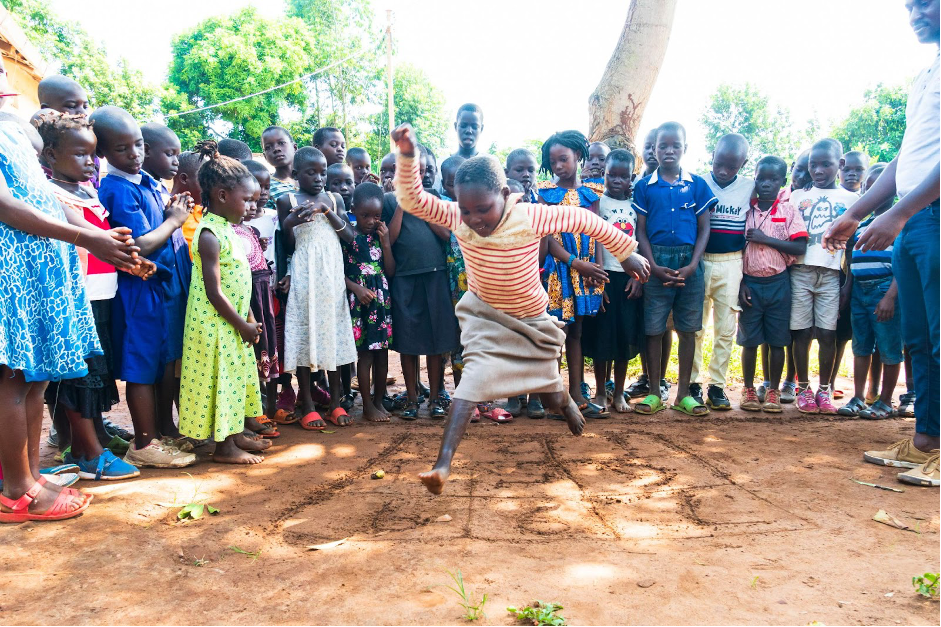
Reach and Results
By the end of 2022, R2R will have reached upwards of 125,000 children with support from several thousand CEVs and 600 teachers. This reach spans 600 public primary school communities in 20 partner districts, with lessons delivered in five languages. Since 2015, Building Tomorrow has already reached over 100,000 learners with R2R literacy and numeracy lessons and helped re-enroll over 75,000 out-of-school children in school. Of learners completing R2R camps in 2022, 75% could read a paragraph, compared to only 6% of P4 students nationally (World Bank, 2019).
